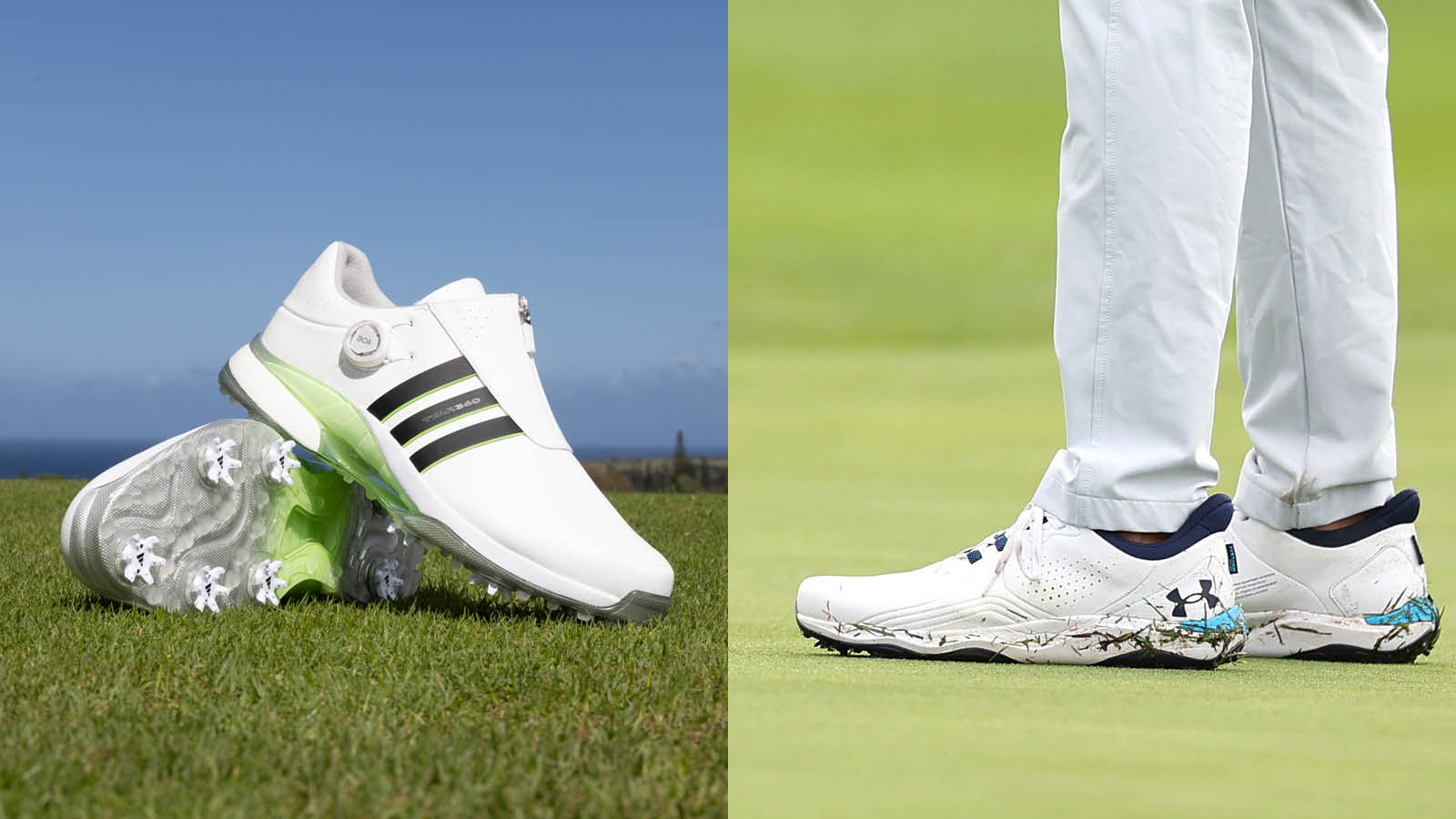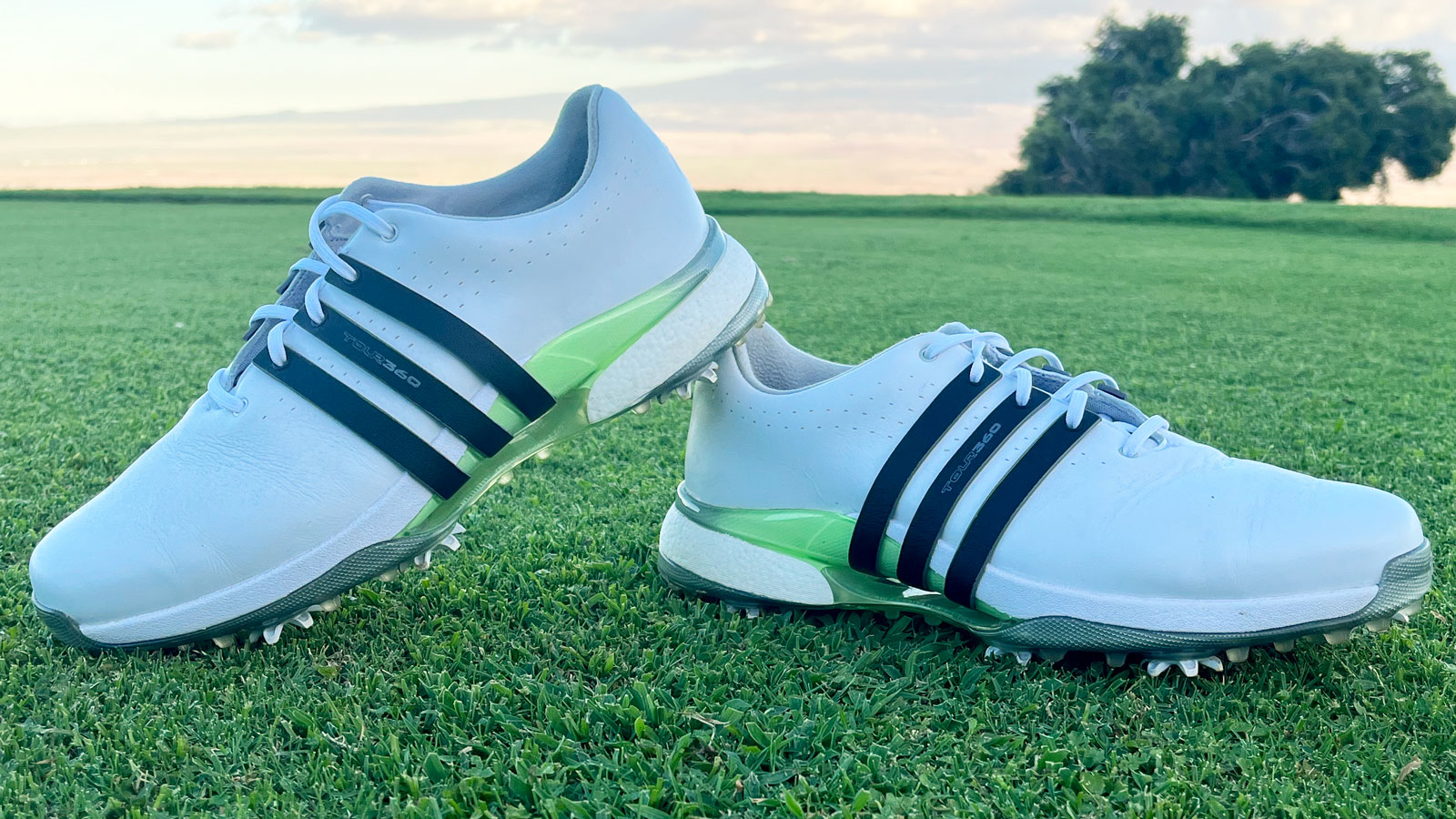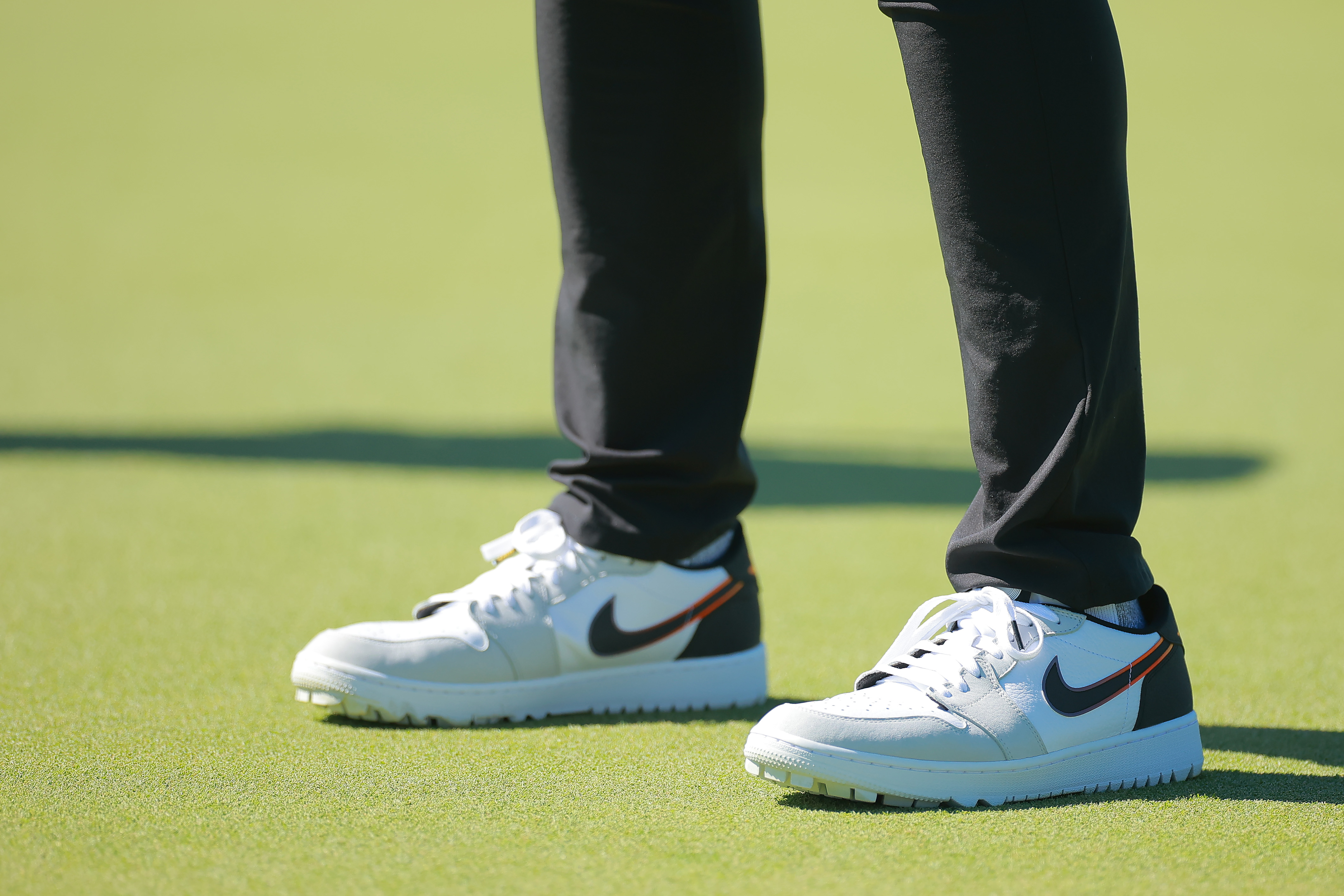
Ever since the spikeless golf shoe rose to prominence, golfers have asked the question - should I wear spiked or spikeless shoes? Most serious golfers will likely have a at least one pair of each they can deploy depending on the conditions or situation, but for those who only want one pair of shoes, which is best? Two of the best golf shoes I've reviewed this year, the adidas Tour360 24 and Under Armour Drive Pro, have got me wondering whether the default setting for golfers should always be spiked.
The impressive performance of the aforementioned shoes in my testing this year has led me to consider; has never been a better time than now for the spiked golf shoe?
With adidas' commitment to looking after the Tour360 franchise as well as the likes of FootJoy, Puma and Under Armour continually innovating in this space, the biggest manufacturers of golf shoes are clearly making sure the best spiked golf shoes, and the golfers who values this performance, are well looked after. While the new disruptors to the market like G/FORE and True Linkswear pretty much exclusively deal in spikeless models, its the bigger, more established brands that continue to innovate to great effect in the spiked market - and they're all pushing each other to keep making better shoes year after year.

Tour validation gives us a good idea of which golf shoe is the best if you want to also perform at your best. Currently, roughly 80% of shoes worn on Tour are using soft spikes of some kind, leaving just 20% of professional golfers opting for spikeless traction for tournament weekends. Considering the swing speeds and ground forces the pros are harnessing, I don't think its any wonder that they're not quite ready to make the leap in earnest to spikeless shoes just yet. Of course, spikeless shoes still make up a decent chunk of Tour, with the new FootJoy Pro/SLX Carbon worn by Sung Jae Im, the adidas Codechaos 22 worn by Tyrell Hatton and Sami Valimaki or the Nike Air Jordan Low 1 G worn by Tony Finau being examples of some of the best spikeless golf shoes that also have that Tour validation.
Speaking with adidas Golf's Global Footwear Director Masun Denison earlier this year, I asked him about whether we're experiencing something of a renaissance for spiked golf shoes, particularly outside of the professional game. The brand has redesigned it new Tour360 24 from the ground up, representing a huge investment in the franchise, so I was keen to know how the brand viewed the current state of the golf shoe market.
'I think at the premium price point, spiked carries a lot of value. Sure spikeless shoes take a large chunk of the market now and are on the heels of spiked in that sense, but there will always be a place in the market for that golfer who wants pure performance. For those who want to wear a shoe in all conditions, all year round and for three to five years let's say, that's where the spiked shoe holds its own. Spiked and traditional golf shoes have definitely made a comeback, and they're not going anywhere any time soon.'

While worn by 80% of golfers on Tour, the split between purchases of spiked and spikeless by amateur golfers is pretty evenly split, but why? Of course, spikeless shoes have a huge advantage over spiked when it comes to versatility. For someone buying just one pair of golf shoes, it makes sense for them to buy a spikeless pair they can wear on the course, at the range and in the bar afterwards. The emergence of more street style shoes like the aforementioned Jordan Low 1 G or the adidas Ultraboost golf shoe is another big pull for golfers into the spikeless rather than spiked segment. With more golfers than ever exclusively playing their golf at driving ranges, it makes a lot more sense to be investing in just spikeless shoes.
However, for me, there is something to be said for the sensation of grip and security that a spiked outsole offers when you're stood over a golf ball. It's a feeling that, despite the superb developments in spikeless outsole technology, I don't think they'll ever be able to recreate and that's why golfers go back to spiked. My testing of the new adidas and Under Armour shoes in particular this year have proven the real value of spiked golf shoes for the performance driven golfer and, more importantly, that brands are still investing serious time and resources into producing the best possible versions of these important pieces of golf equipment. A renaissance? That's probably a bit dramatic, but I think right now represents something of a golden year for spiked golf shoes.







